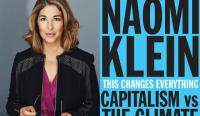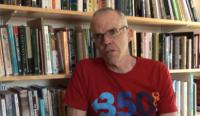The ten richest per cent of the population produce almost half of all global greenhouse gas emissions whereas the poorest half is responsible for only ten per cent. Unless we can tackle inequality and climate change together, you won't solve either of them, says Tim Gore of Oxfam. The carbon footprint of the richest 10 per cent of the population must shrink dramatically, says the renowned climate scientist Kevin Anderson.
Gefördert von der Stiftung Nord-Süd-Brücken mit Mitteln des BMZ, Brot für die Welt/EED und Stiftung Umverteilen.
Droughts and heavy rainfalls in South Africa, devastating hurricanes in the Caribbean, receding glaciers in the Andes, rain instead of snow in the polar region: Climate Change is already undermining livelihoods of millions of people around the world. Rice and maize harvests could drop up to 40 % in the future. Especially dangerous are so called tipping points in the earth system like the melting of the permafrost that could set free enormous amounts of the greenhouse gas methane. To avoid such knock-on effects we have to exit much earlier from coal, gas and oil as planned today, says Kevin Anderson from the renowned Tyndall Centre.
The poorest half of the population is responsible only for ten per cent of global emissions whereas the ten richest per cent produce almost half of all emissions. This is the result of a study by the organization Oxfam. Tim Gore, author of the study highlights that the least responsible are at the same time those who experience the impacts of the climate crisis the hardest. Hence, climate justice means that the wealthier parts of the world have to reduce the emissions starkly and provide the finance for adaptations for the poorer regions. But the EU so far has only pledged half of the needed 80 % emission cuts by 2030. Instead of the estimated 1.5 trillion dollars for adaptation and emission reduction the developed countries only want to mobilize 100 billion for the developing countries – and even this sum is not guaranteed.
The emission trading scheme has failed as an instrument to curb global warming. The reason for the failure is that there has never been a global cap on carbon emissions. In the end loopholes have caused stagnating or even rising emissions, says Alice Bows-Larkin. Additionally problematic mega-dams have been pushed as green projects. To include forests and soils in the emission trading like it is done with the program REED+ in the Paris agreement would follow a “perverse logic”, says former chief climate negotiator of Bolivia Pablo Solón. Only those who reduce deforestation get carbon credits as a kind of reward. Troubling is also that scientists and politicians rely on carbon capture and storage and geo-engeneering to reduce our emissions in the future. Instead of following these kind of dangerous solutions politics should rather stop the pollution by reducing the extraction of oil, gas and coal in the first place.
The shift from fossil fuel infrastructures to non-carbon must be fair and should include workers’ rights, says Janet Redman of the Institute for Policy Studies in Washington D.C. Therefore we needed a progressive carbon tax and regulations. These measures should entice wealthy people to reduce their carbon footprint while at the same time give space for the poor to develop. But technical fixes are limited, says Alice Bows-Larkin. We also have to reduce our demand side, the consumption of energy. Small scale farming and regional economies could play an important role in this. In Germany the trade agreement TTIP should be stopped, the auto industry shrunk and coal industry fased out in the next decade, says climate activist Tadzio Mueller. This will also need actions of civil disobedience.









